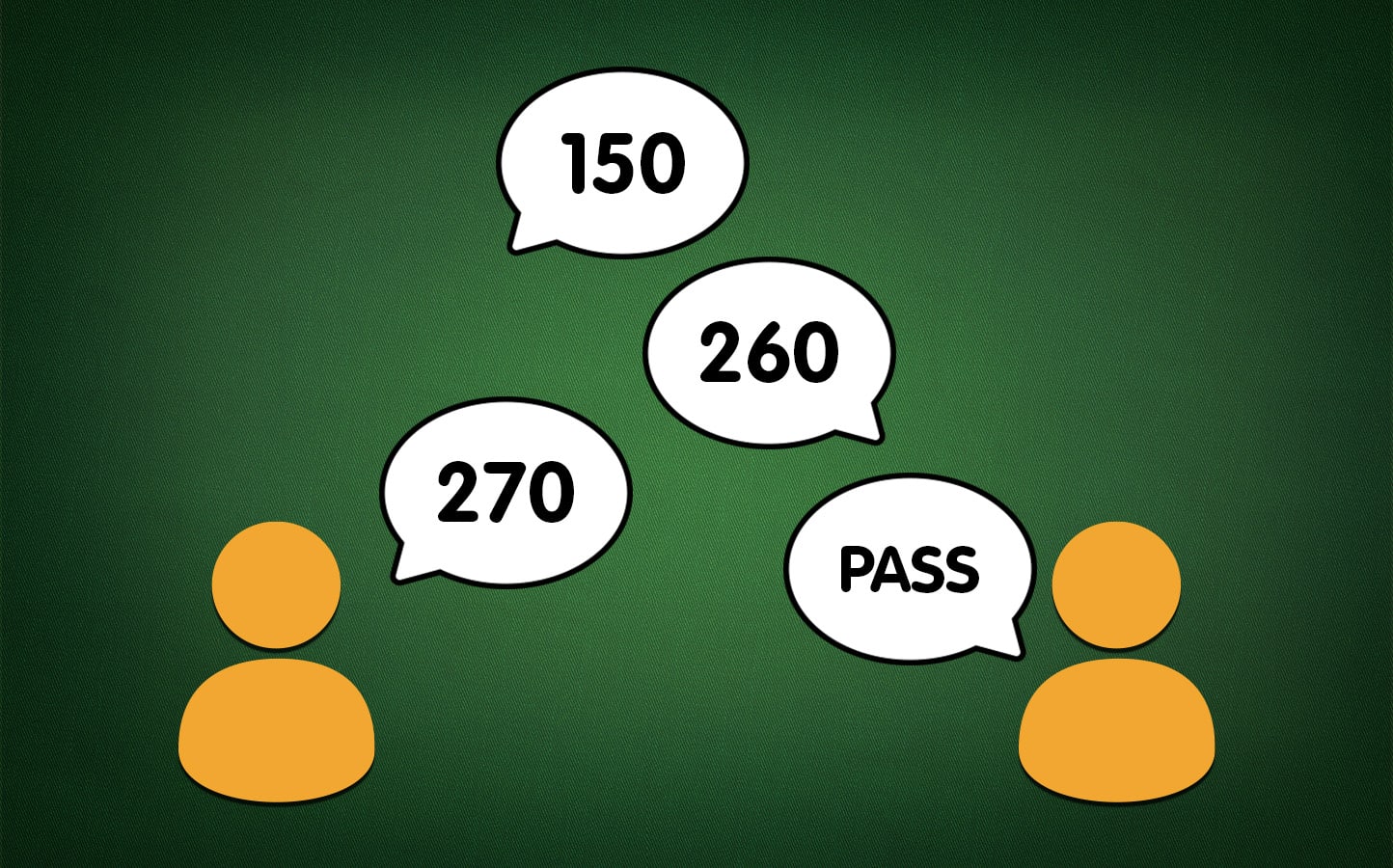Before any melding or trick-taking can go down, a few numbers will fly across the room when playing Pinochle. That is called bidding, and it can seem a bit confusing at first. But we are here today to clear up what these numbers and the bidding are all about.
A complex topic requires a thorough lesson. So, if you want to find out something specific, you can jump to the dedicated chapters here.
- When do You Bid?
- Bidding is Worthwhile
- The Risk of it All
- The Course of Bidding in Pinochle
- When You Can Bid High
- When You Should Pass
- Use in Moderation
- Forfeiting – After Overbidding
1. When do You Bid?
Once all cards are in the players’ hands and in the kitty, bidding begins. In this step, you already need to consider which cards you could meld, even though melding will only start later. That is why we explained melding in detail in the previous Pinoche Lesson.
2. Bidding is Worthwhile
The player winning the bidding has the advantage of declaring the game. That is why we refer to that person as the declarer. As declarer, you have the privilege to determine the trump suit in our basic Pinochle game. You can add more game modes using custom rules.
Furthermore, you get to pick up the kitty – the cards set aside during dealing. You can use them to optimize your hand or even save important points.
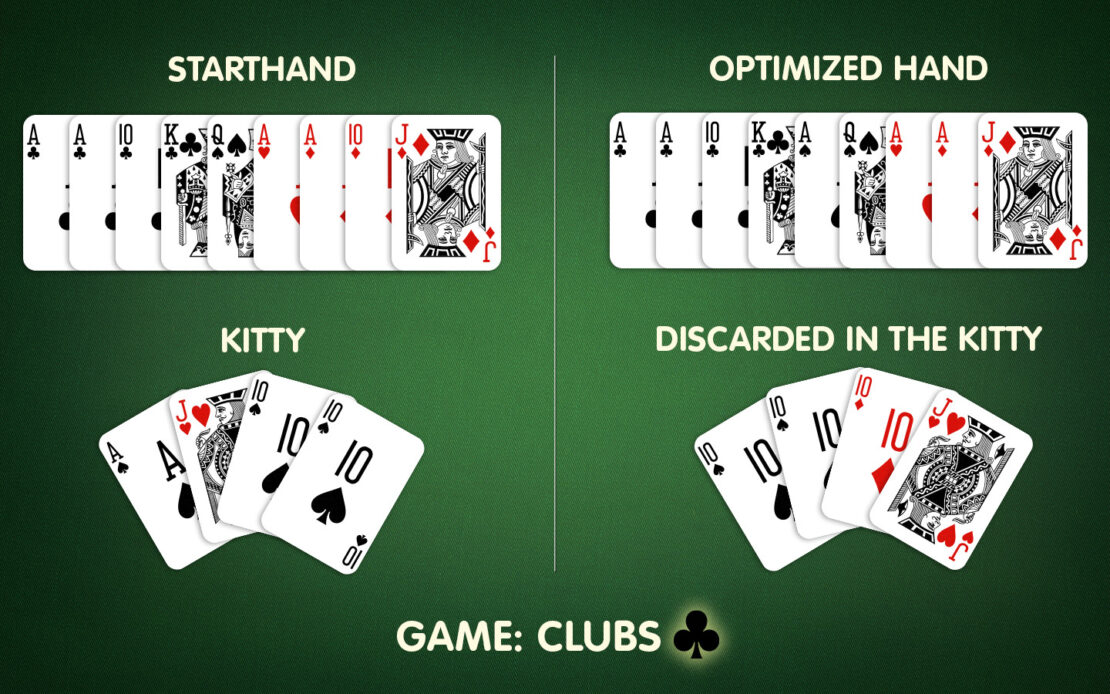
After all, the same number of cards you picked up with the kitty needs to be discarded again. Regardless, if the cards were originally in your hand or the kitty, you cannot use the discarded cards for melds. The eye value of the discarded cards will be added to your score after winning the trick-taking.
3. The Risk of it All
Since winning the bidding comes with great advantages, it has strings attached, of course: If you become the declarer, you need to reach your bid value in the game!
When you meld, the respective meld points enter your score once you take at least one trick in the round. If these points do not suffice, you need to collect tricks until your score is at least equal to your bid value. You can find an overview of the card values in our fourth Pinochle Lesson. One way or another, you can always see your score at the Pinochle Palace – so do your opponents.
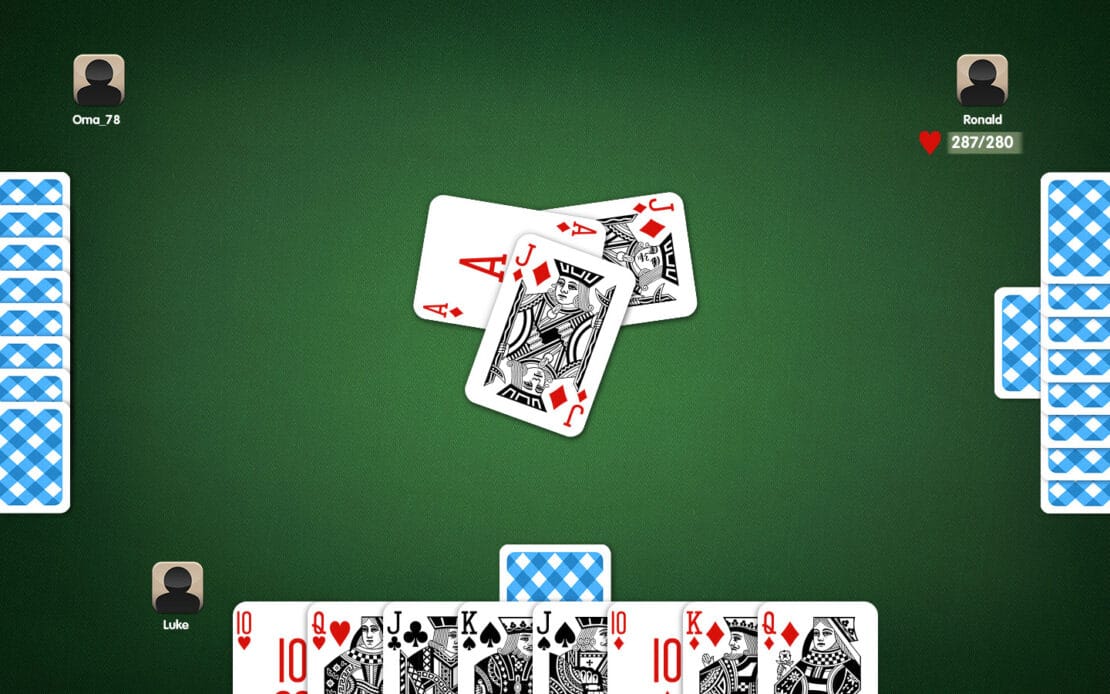
We highlighted the score: You can see that the bid value was exceeded and cannot drop below 280 by rounding either.
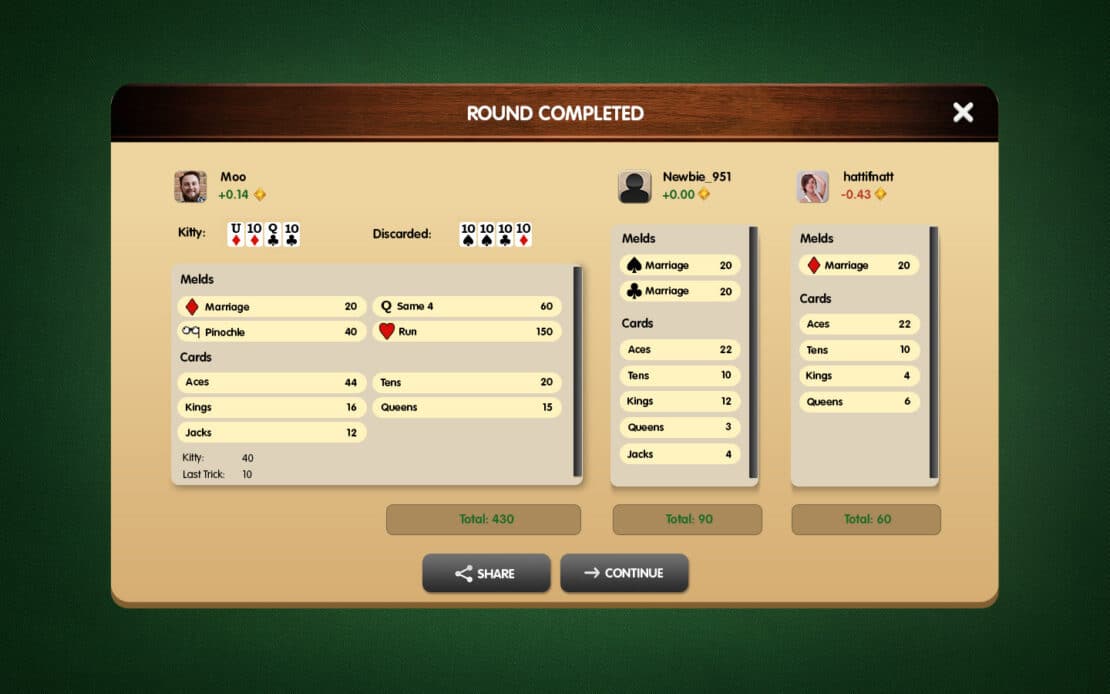
In Cross Pinochle, tricks, melds, and points of the players in a team are scored and added up. Thus, one teammate’s trick is enough to bring both teammates’ meld points to the scoreboard.
If you miss reaching your bid value, you automatically lose the round! Then, double your bid value is subtracted from your score instead. In Cross Pinochle, that affects the declarer’s entire team. The remaining players receive their meld points as well as ten bonus points per player each. Thus, you should gauge how high you can and want to bid.
If you realize before declaring that you cannot win, you should forfeit your hand. We are going over the exact process at the end of this lesson.
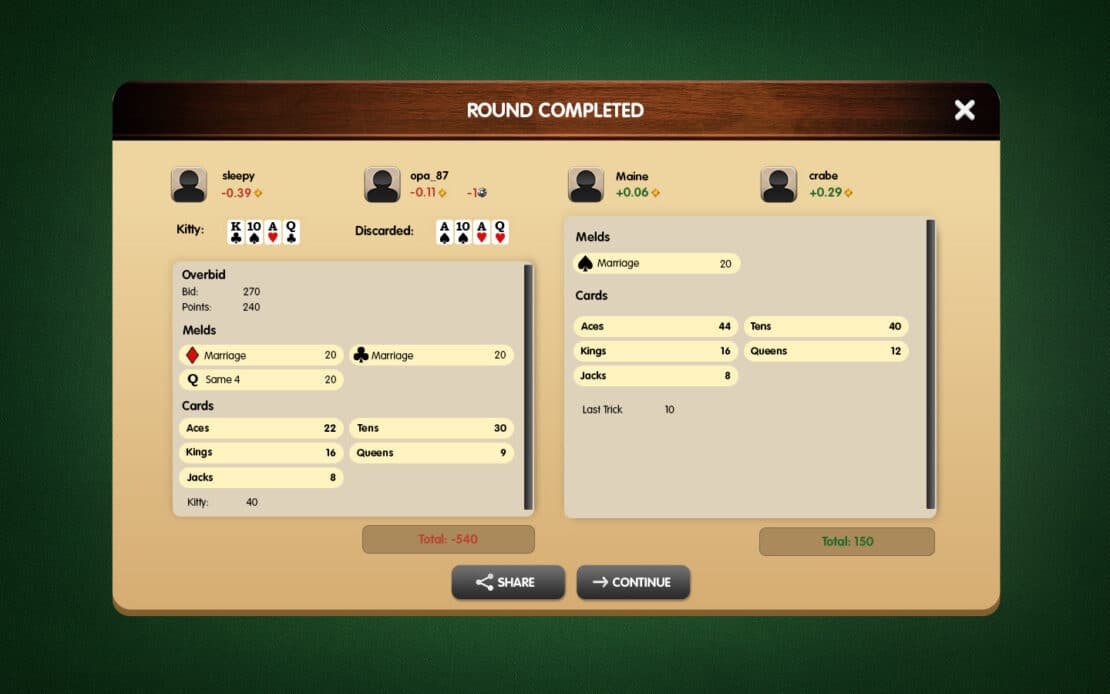
4. The Course of Bidding in Pinochle
During bidding, everybody announces how many points they each think they could win, trying to name the highest number. The steps of bidding go in tens. The player prevailing with the highest value wins the bidding and is the declarer now. Everybody gets to bid, but only two players are bidding at the same time against each other.
That goes counter-clockwise. The player right from the dealer is the forehand and must always start bidding with at least 150 points. The middlehand has to answer. They can either bid at least ten points more or pass. The Forehand gets to react in turn, with the same options.
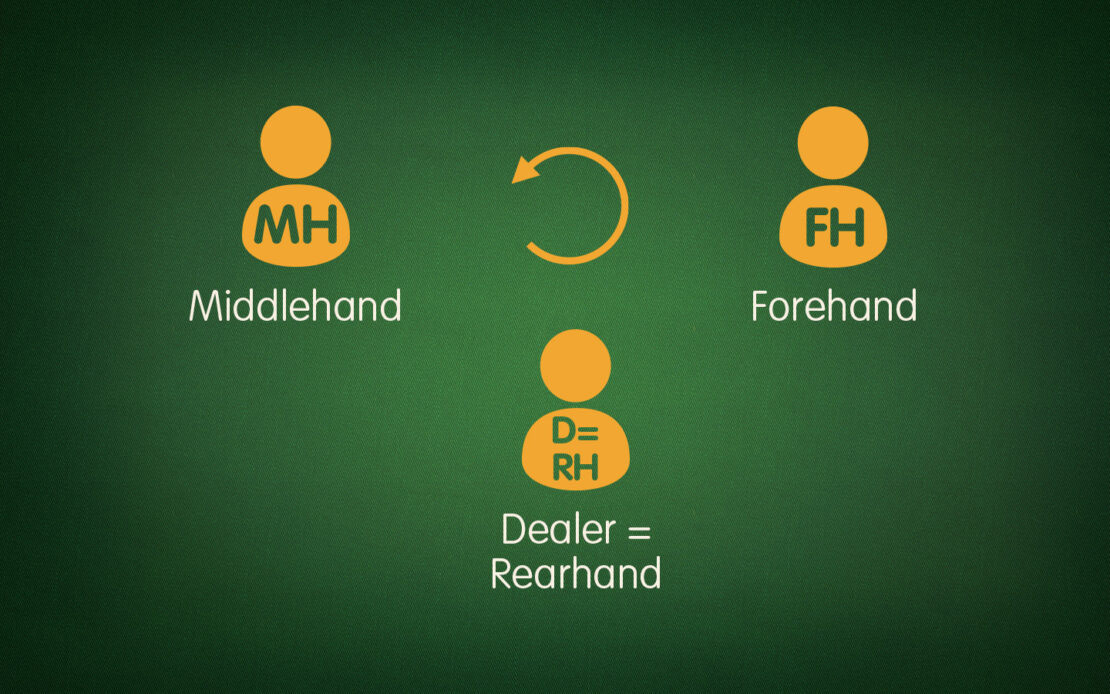
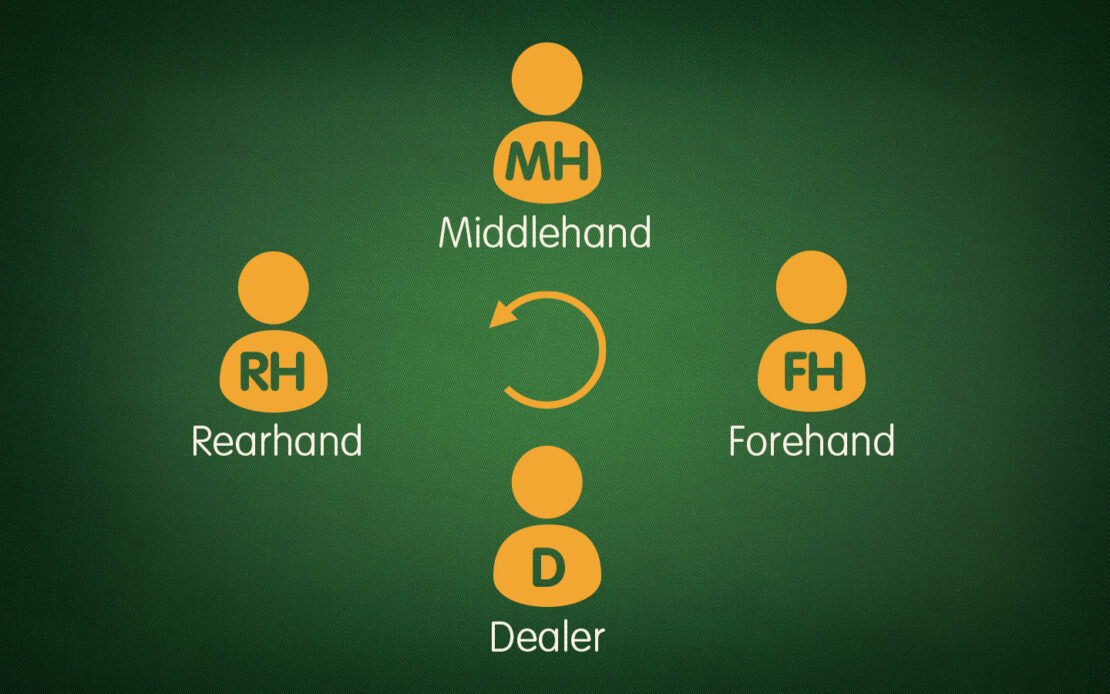
You are not tied to starting at 150 points or increasing by ten points. You could also start off with bigger steps, starting at a bid value of 240 or top your opponent’s bid by 40 points, for example.
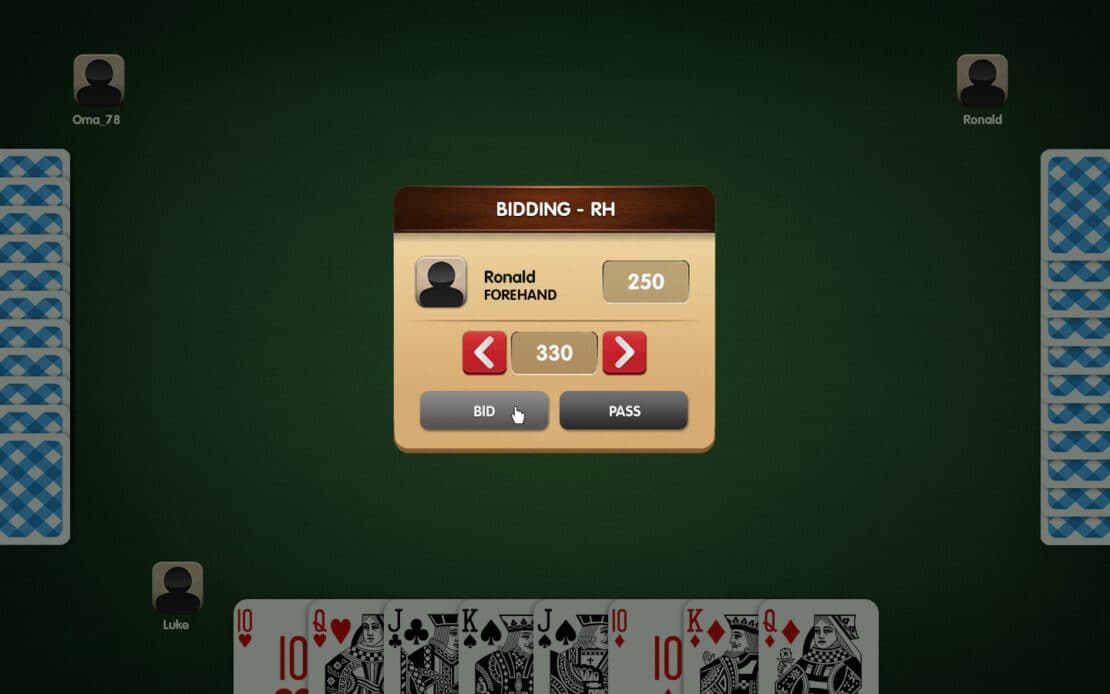
If you do not want to bid, click Pass.
You can use the red arrows to take steps of ten points to adjust your desired bid value. Then, click Bid.
When a player passes, the next player needs to react to the last-mentioned bid value by increasing the bid value or passing. In a game of four, the bidding goes on between the opposing teams at first. If only one team is left, you could still bid within your own team. But you should not take that too far. When only one player remains, you determined this round’s declarer.
5. When You Can Bid High
If you are lucky, you might have an especially valuable meld in your hand – a Run or maybe even Eight of a Kind. If your hand cards are also fit to win at least one trick, you can dare to bid higher values. But there are also scenarios without the prospect of high melding scores that come with great opportunities concerning bidding.
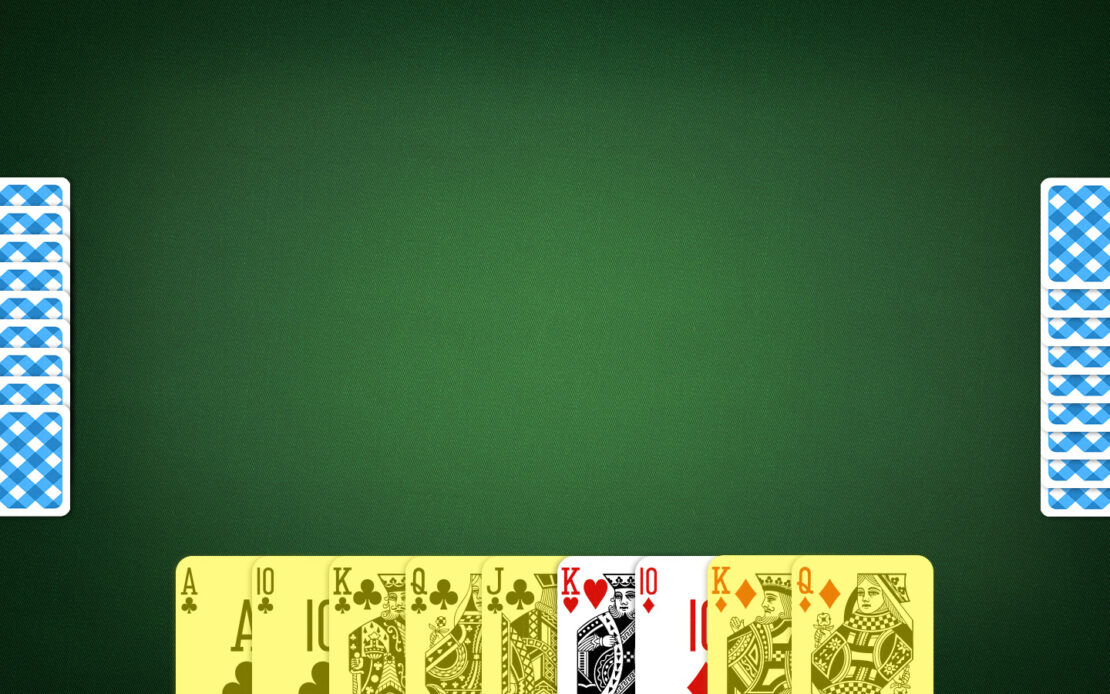
As it makes sense to declare Clubs as the trump suit, in this case, you can even assume 150 points for the Run. That checks out at 170 meld points once you take a single trick.
If you have many relatively strong cards of multiple suits – Aces and Tens – you are good to bid for a while. As declarer, you could turn the suit dominating your hand into the trump suit. That way, even the weakest card of that suit would still be stronger than all cards of any other suits in the game, which would likely enable you to take even more tricks.
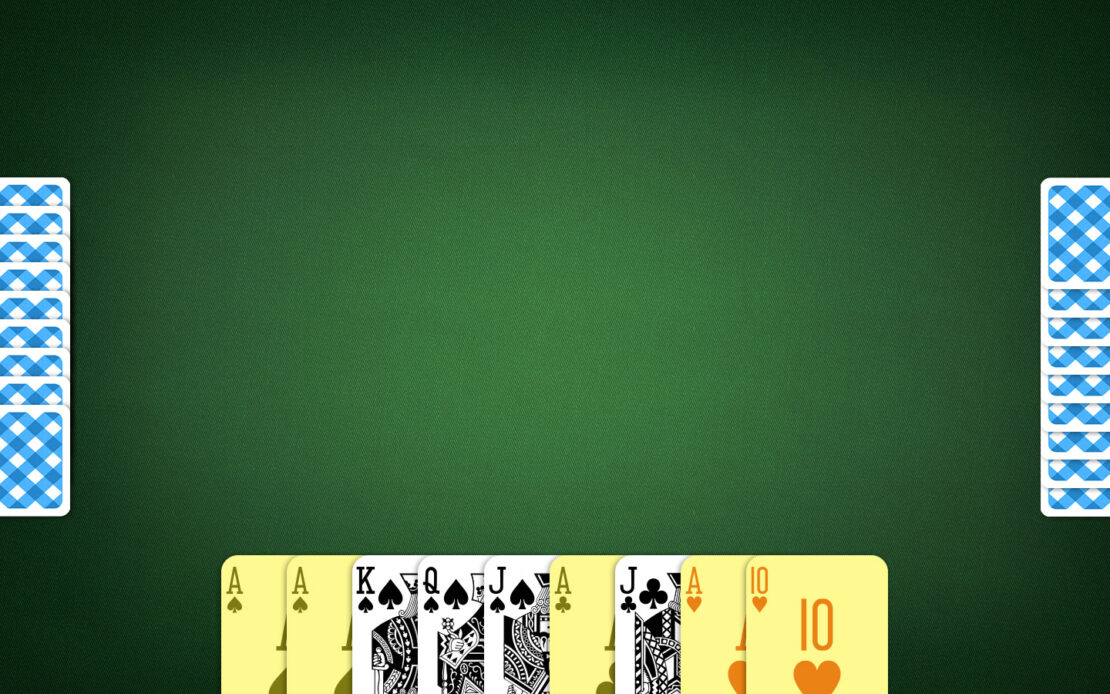
If you become declarer, you could also make Spades the trump suit, resulting in you holding five trump cards. And maybe the Ten of Spades that would complete your run is waiting in the kitty.
By the way, when you hold Aces, you should try to take a trick as soon as possible if you are not the forehand anyway. After all, you can only win a trick if your Ace is the first one in the trick. If there is already an Ace on the table and you play another one following the suit, the player adding the highest card first will always win the trick.
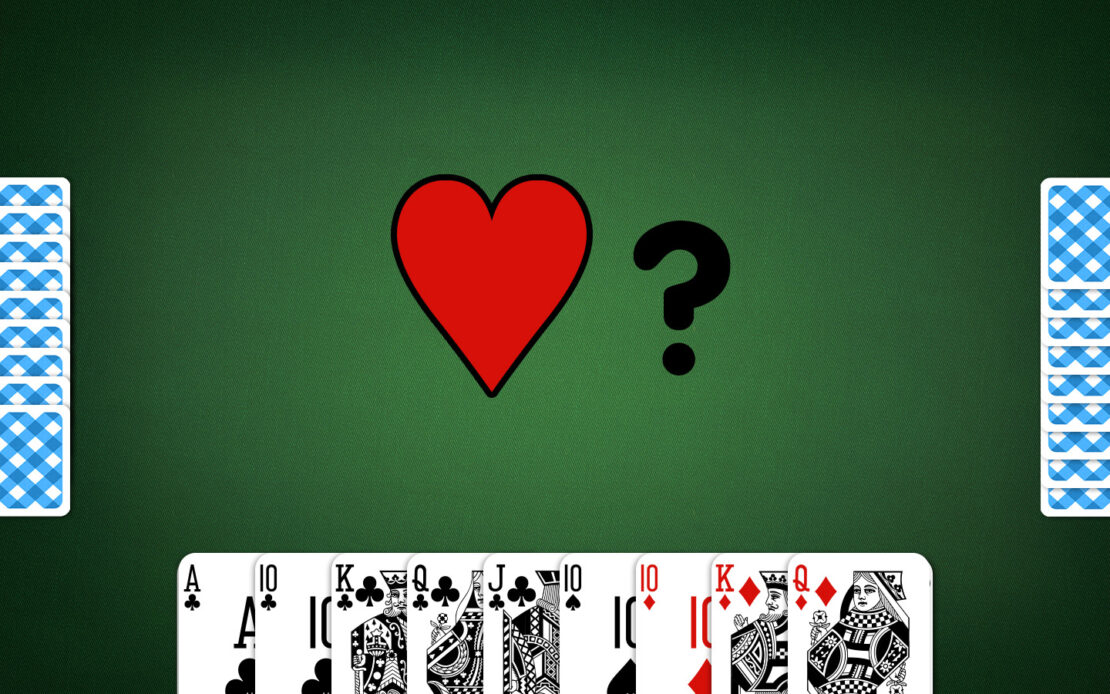
To prevent that, you can try to control the game by becoming the declarer. But keep in mind that your hand must also be fit to take tricks. That could work here with Clubs as the trump suit, and you could also meld a Marriage and a Run, for example.
But do not let your fellow players tempt you into overbidding!
It can also make sense to take the game into your hands if you do not have a single card of one of the suits. Otherwise, you might not be able to follow suit with a lot of tricks, thus being unable to win any of them. In the worst case, the suit you are lacking becomes the trump suit. But you should only use this way out if the remaining three suits in your hand make up a strong hand with high cards.
6. When You Should Pass
Passing is a great idea when the bid value is so high that you are unlikely to reach it. That can happen when you cannot meld. In that case, you could bid up to 250 in theory, as that is the highest score to reach by trick-taking only. 240 eyes are in the game, and the player taking the last trick gets ten bonus points. You get the bonus automatically if you gain 240 eyes since you need to get ALL tricks, including the last one, to reach that.
But if you have a hand full of weak cards, you should pass as soon as you can. And that applies especially to scenarios where weak cards and a lack of melds meet.
7. Use in Moderation
If you like to take a risk, you can also bet on the cards in the kitty bringing further options to you. Then, you can be more generous with your estimated tricks and melds. Of course, that can backfire. You could still forfeit your hand in such a case: You still need to discard the kitty and announce what suit you are forfeiting in. “Forfeiting in Diamonds,” for example.
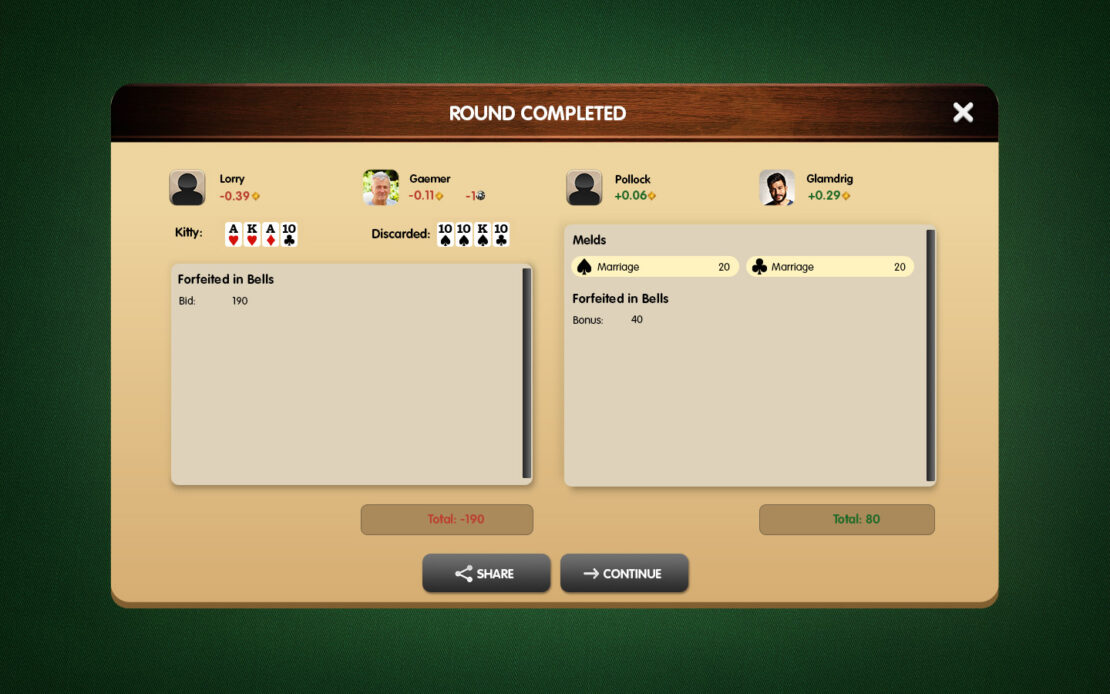
In the end, you need to decide how you go about playing Pinochle. Maybe you prefer to be safe and only bid as far as your points are guaranteed. But then, you might not become the declarer as often.
Or maybe you prefer bidding higher to guarantee your control over the game. If you can stomach the abrupt defeat, that is alright. But it is more fun for everyone if you actually get to play. So, stay fair and do not overdo the overbidding!
8. Forfeiting – After Overbidding
If you conquered the kitty by bidding and it did not deliver the desired cards, you can choose to forfeit your hand. Forfeiting comes with plenty of negative points, too: The subtracted score equals your bid value when forfeiting. But at least, this is only half the penalty of a lost game.
Should you choose to forfeit, this is how it goes:
- You discard the kitty and declare the trump suit.
- You get negative points equal to your bid value. In Cross Pinochle, the same goes for your teammate.
- The remaining players meld their combinations. Additionally, they each add ten bonus points per player to their meld points – 30 in a game of three and 40 in a game of four.
- You are not allowed to meld. In Cross Pinochle, the same goes for your teammate.
If you do not forfeit, you just declare the trump suit, everybody melds, and trick-taking starts! And that is exactly the topic of our next lesson.
If there are any open questions, feel free to take a look at our Pinochle manual or browse our list of lessons. If everything is already answered, we wish you loads of fun in your next Pinochle rounds!
